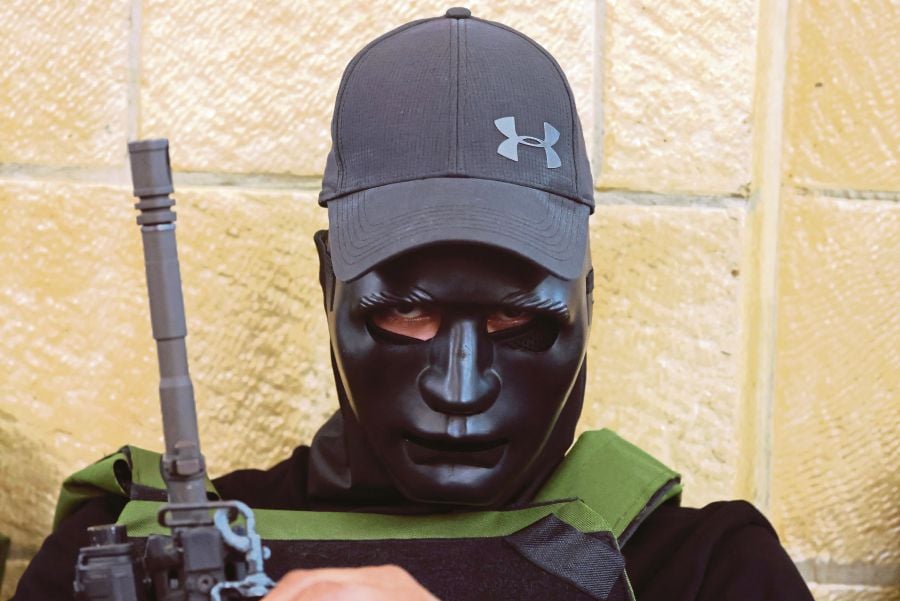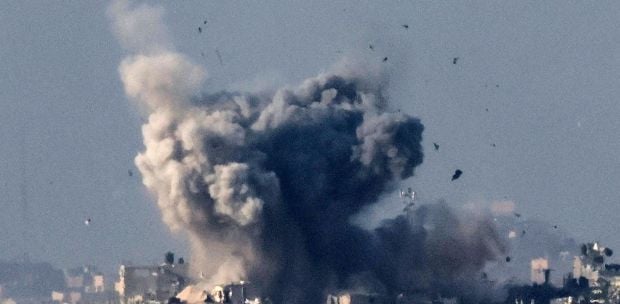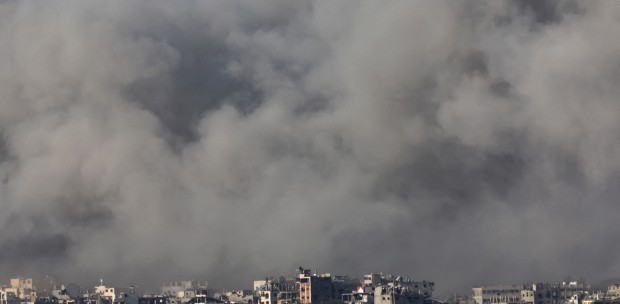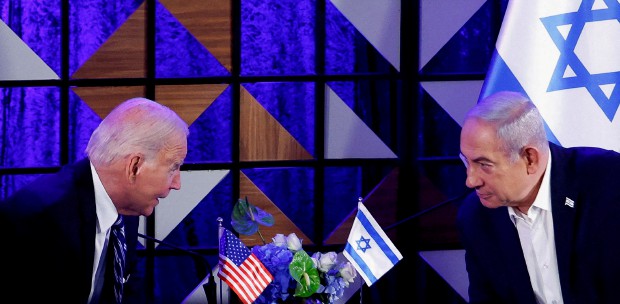SITTING in a bullet-scarred building in Jenin, two Islamic Jihad fighters celebrated what they said was a victory for Palestinians over the biggest Israeli operation in the West Bank in decades.
Israeli commanders said the two-day incursion in the Jenin refugee camp last month seized weapons and smashed infrastructure used by fighters funded by Iran to attack Israel.
While the fighters make no secret of the fact money comes from Iran, for them, the battle is a local one, fuelled by anger over the Israeli occupation.
And, they show no interest in the broader geopolitical issues, according to dozens of conversations with fighters and sympathisers in Jenin.
One Islamic Jihad fighter, Abu Salah, a thin, bearded 36-year-old, said fighters felt they had no alternative.
"We are surrounded and we are under siege. We have no choice but to fight. It's true that Islamic Jihad is the main faction but the more important thing is that we are sons of Jenin," he said, sitting amid chunks of masonry and burned-out cooking gas canisters used as improvised bombs during the Israeli incursion.
For over a year, there has been turmoil in the West Bank, an area about 100km long and 50km wide that has been at the heart of the Israeli-Palestinian conflict since it was seized by Israel in the 1967 Middle East war.
Hundreds of Palestinians, mostly fighters but many civilians as well, have been killed in Israeli raids since the latest wave of violence erupted in early 2022.
In the same period, dozens of Israelis have been killed in shootings, stabbings or car-ramming attacks by Palestinians.
Jenin, a hub of Palestinian resistance to Israel, has provided a fertile arena for the interests of Iranian security officials, shadowy financiers and competing Palestinian factions to meet.
"Iran is spending a lot of money in the West Bank but they aren't able to target it precisely or get terror operatives to do exactly what they want so it's a bit hit and miss," said Tamir Hayman, managing director of Israel's Institute for National Security Studies in Tel Aviv, and a former head of Israel's military intelligence.
Asked if Iran trains and provides monetary and other support to Islamic Jihad, Iran's mission to the United Nations in New York said in an email: "Our assistance to Palestinian resistance groups is provided upon their request. It is the international obligation of all states to empower and defend these groups against occupation and resist Israeli occupying forces."
Islamic Jihad spokesman Daoud Shehab said it was no secret the movement received Iranian support but that there was "no direct connection between Iran and what's happening in Jenin or elsewhere".
Surveys show overwhelming public support among Palestinians for armed groups as Jewish settler attacks on Palestinian villages have become more brazen.
While security officials say they have seen a recent increase in smuggling of weapons and drugs, Israeli officials and militant groups say Iranian support also comes from more sophisticated money transfers.
Typically, transfers involve legitimate foreign currency letters of credit, or orders for imported goods, usually at inflated valuations, from garments to toys to shoes and household items mainly from China, sources familiar with the mechanism said.
Anywhere between a quarter to a third of the value of these transactions is passed in cash to businessmen Islamic Jihad trust and who get the money to the militant group, often using family ties to help keep the transfers covert, the source said.
Automatic rifles, such as M16s, can cost US$30,000 and, in an area of chronic unemployment, regular fighters say they can earn US$300 to US$700 a month from the Iranian-backed group.
Much of the weaponry used by the Jenin fighters comes from Israel itself, stolen and sold by criminal gangs. Some are smuggled across the Jordanian border, and some are improvised in local workshops.
For the young men in the camps, inspired by the posters of martyred fighters that plaster public spaces, the origin of the money that pays for the weapons is of little concern.
"We don't care who brings the funds to us," said another fighter, from the Al-Aqsa Brigades, the armed wing of Fatah which now runs the Palestinian Authority.
* The writers are from the Reuters news agency





